Antarctica: In From the Cold? – IELTS Reading Answers
4 min read
Updated On
-
Copy link
Table of Contents

Limited-Time Offer : Access a FREE 10-Day IELTS Study Plan!
The Reading Module of the IELTS can be the top scoring category, with diligent practice. To achieve the best results in this section, you must understand how to approach and answer the different Question types in the Reading Module. By solving and reviewing Sample Reading Questions from past IELTS papers, you can ensure that your Reading skills are up to the mark.
The Academic passage ‘Antarctica: in from the cold?’ is a reading passage that appeared in an IELTS Test.
Ideally, you should not spend more than 20 minutes on a passage. Let’s see how easy this passage is for you and if you’re able to make it in 20 minutes. If not, try more IELTS reading practice test from IELTSMaterial.com
Antarctica: in from the cold?
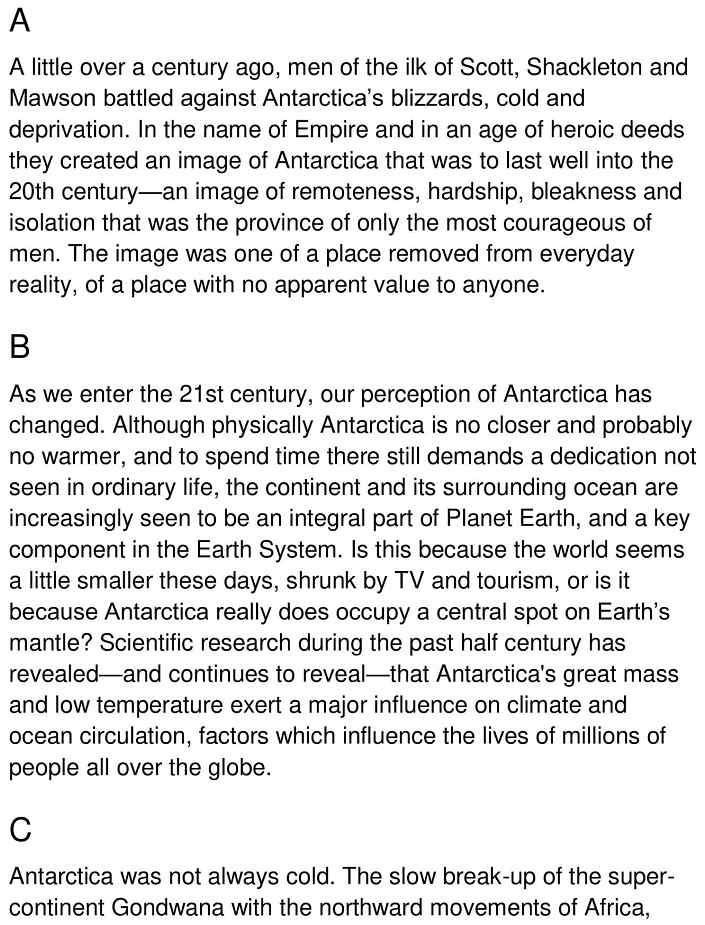
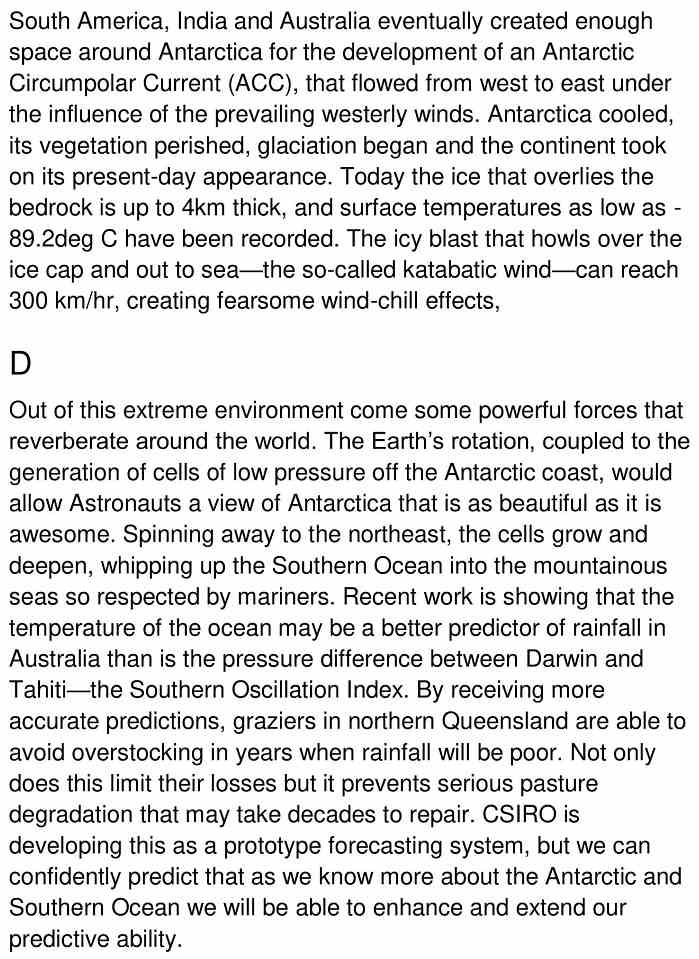
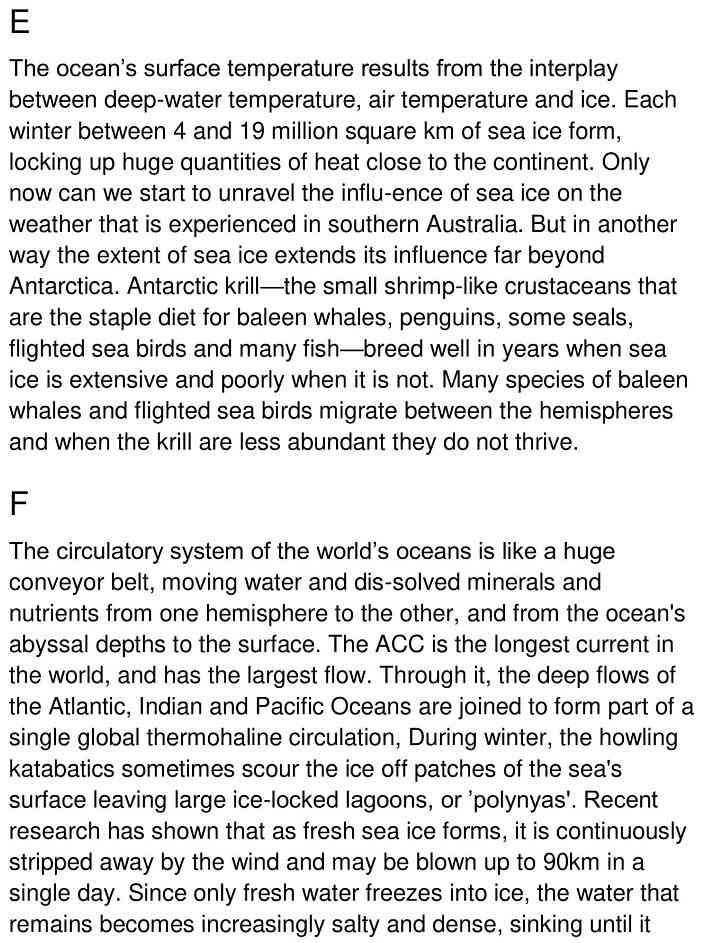
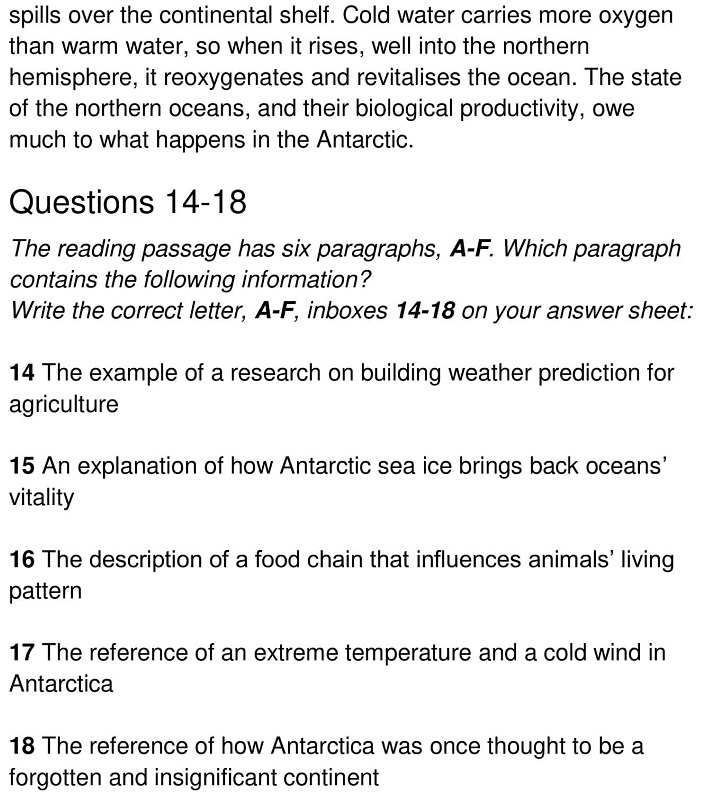
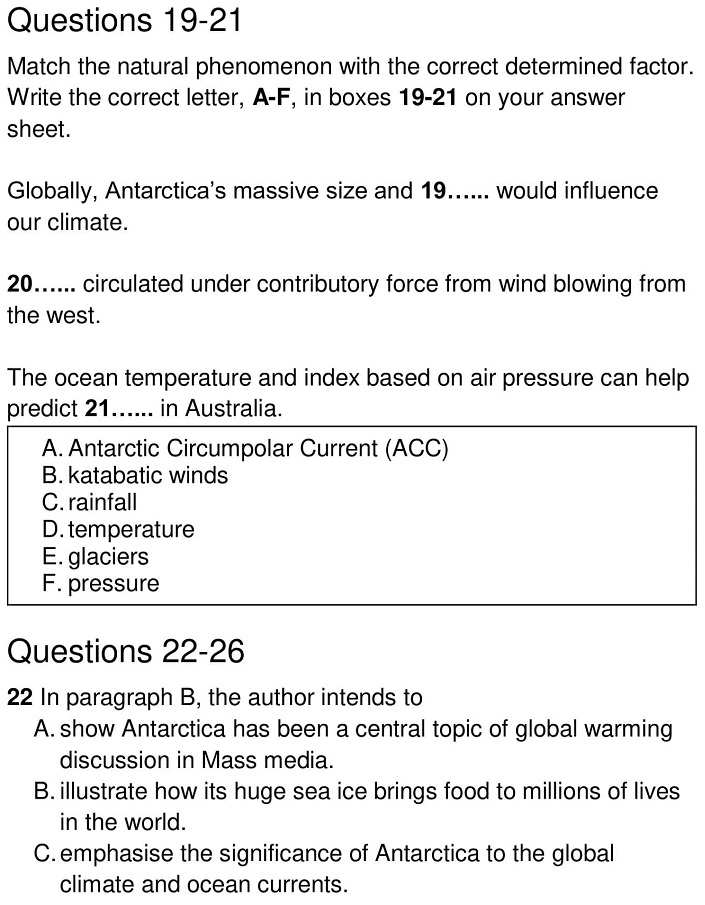
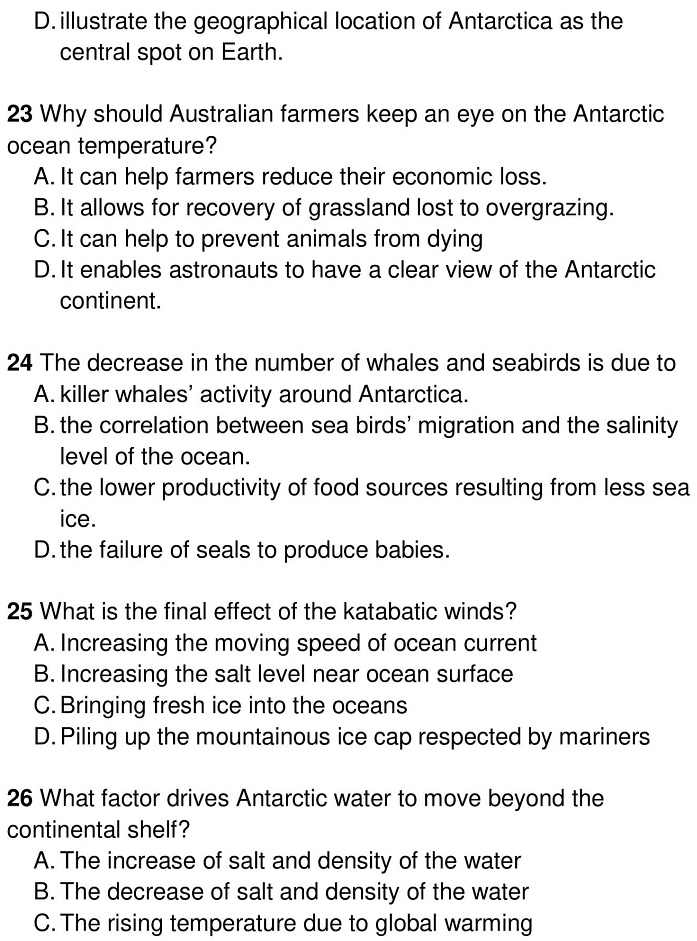
![]()
Answers for Antarctica: In From the Cold? IELTS Reading Passage with Location and Explanations
Check out the answer key for this IELTS reading passage, Antarctica: In From the Cold? with detailed explanations.
Unlock Answers
| Question number | Answer | Explanation |
|---|---|---|
| 14 | D | As per paragraph D, “recent work is showing that the temperature of the ocean may be a better predictor of rainfall in Australia than is the pressure difference between Darwin and Tahiti.” Moreover, “CSIRO is developing this as a prototype forecasting system.” The term ‘recent work’ signifies that it’s research about weather prediction for agriculture developed by CSIRO. Hence, the correct answer is “D.” |
| 15 | F | According to paragraph F, “cold water carries more oxygen than warm water, so when it rises, well into the northern hemisphere, it reoxygeneates and revitalises the ocean.” The term reoxygenated and revitalizes explain how Antarctic sea ice brings back the ocean’s vitality (energy). Hence, the correct answer is “F.” |
| 16 | E | Paragraph E states that “Antarctic krill – the small shrimp-like crustaceans that are the staple diet for baleen whales, penguins, some seals, fighted sea birds, and many fish – breed well in years when sea ice is extensive and poorly when it is not.” From ‘staple diet,’ we can deduce that it’s discussing the food chain and how it influences animals’ living patterns. Hence, the correct answer is “E.” |
| 17 | C | Paragraph C provides the information that “today the ice that overlies the bedrock is up to 4km thick, and surface temperatures as low as – 89.2deg C have been recorded.” This line confirms that Antarctica records extreme temperatures (-89.2 deg C). Hence, the correct answer is “C.” |
| 18 | A | Paragraph A discusses the reference of how Antarctica was once thought to be insignificant, where it mentions that “the image was one of a place removed from everyday reality, of a place with no apparent value to anyone.” Hence, the correct answer is “A.” |
| 19 | D | Paragraph B states that “Antarctica’s great mass and low temperature exert a major influence on climate and ocean circulation.” From the term ‘temperature exerts a major influence on climate’, we can infer that temperature generally influences the climate. Hence, the correct answer is “D.” |
| 20 | A | Paragraph C puts forward this idea that “Northward movements of Africa, South America, India and Australia eventually created enough space around Antarctica for the development of an Antarctic Circumpolar Current (ACC), that flowed from west to east under the influence of the prevailing westerly winds.” Therefore, the Antarctic Circumpolar Current (ACC) circulated under contributory force from winds blowing from west to east. Hence, the correct answer is “A.” |
| 21 | C | Paragraph D discusses that “recent work is showing that the temperature of the ocean may be a better predictor of rainfall in Australia.” It implies that temperature helps to predict ‘rainfall’ in Australia. Hence, the correct answer is “C.” |
| 22 | C | In Paragraph B the author talks about “Antarctica’s great mass and low temperature exert a major influence on climate and ocean circulation, factors which influence the lives of millions of people all over the globe.” This line confirms that the author discusses the significance of Antarctica to global climate, as it’s affecting millions of people around the globe. Hence, the correct answer is “C.” |
| 23 | A | Paragraph D mentions that “not only does this limit their losses, but it prevents serious pasture degradation that may take decades to repair.” The term ‘limit their losses’ confirms that it helps farmers reduce their losses. Hence, the correct answer is “A.” |
| 24 | C | The last lines of paragraph E mention that “many species of baleen whales and flighted sea birds migrate between the hemispheres and when the krill are less abundant they do not thrive.” Krill breeds only when sea ice is extensive. Whales migrate, as food sources’ suffer (when there is less ice). Hence, the correct answer is “C.” |
| 25 | C | According to paragraph F, “the howling katabatic sometimes scour the ice off patches of the sea’s surface leaving large ice-locked lagoons.” The term scours means to brighten up the surface. Therefore, we can deduce that katabatic winds are bringing fresh ice into oceans. Hence, the correct answer is “C.” |
| 26 | A | Paragraph F confirms that Antarctic water moves beyond, “the water that remains becomes increasingly salty and dense, sinking until it spills over the continental shelf.” Hence, the correct answer is “A.” |
Check More IELTS Reading Answers
Also check :
Practice IELTS Reading based on question types

Start Preparing for IELTS: Get Your 10-Day Study Plan Today!
Recent Articles

Nehasri Ravishenbagam

Haniya Yashfeen

Haniya Yashfeen

Haniya Yashfeen




Post your Comments